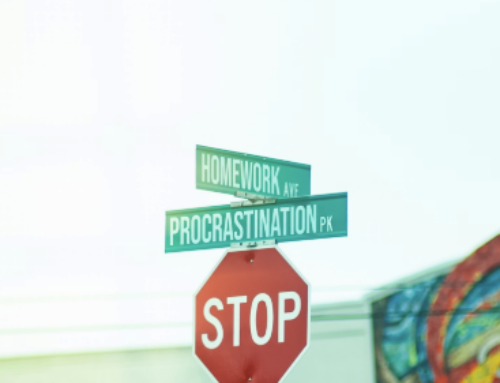 When you think of 19th century novels, most often than not, one of the big names that comes to mind is Jane Austen. This is no mistake, as she is one of the most influential writers of all time and has left a lasting impression on literature. Her stories aren’t grand or haughty in their manner, nor does she lean into the fantastical; rather they zoom in on the mundanity of life and the beauty of small moments.[1] She’s incredibly accessible, her prose rich with “comedy” and “self-awareness.”[2] It’s a delicious shrewd voice that places her society—and perhaps ours—on a stage, to be observed and critiqued.[1]
When you think of 19th century novels, most often than not, one of the big names that comes to mind is Jane Austen. This is no mistake, as she is one of the most influential writers of all time and has left a lasting impression on literature. Her stories aren’t grand or haughty in their manner, nor does she lean into the fantastical; rather they zoom in on the mundanity of life and the beauty of small moments.[1] She’s incredibly accessible, her prose rich with “comedy” and “self-awareness.”[2] It’s a delicious shrewd voice that places her society—and perhaps ours—on a stage, to be observed and critiqued.[1]
Austen had a hand in popularizing a style of storytelling known as Bildungsroman—a coming of age novel that focuses on moral and psychological growth.[3] She wasn’t alone in this endeavor as many of her contemporaries leaned on this style to write their books, a notable mention being Charlotte Bronte’s Jane Eyre. Austen was also a pioneer of the free indirect third person narrative, where the voice of the character and the narrators meld together, and you are able to access everyone’s thoughts as you read.[2]
Her style and character of writing then come together to create six novels that sink their nails into the “manners of middle-class life…of her time” and demonstrate its hand in the life of her heroines.[1] All flawed in some way or another, all with an intrinsic knowledge or misconception about the world that they must overcome, all while navigating the strictness of society as women. She discusses a variety of themes, including difficult ones such as grief and regret through her characters.[2] One of the areas that she truly shines, in addition to creating well-developed characters, is in her exposition of romance. There is no one way to fall in love in an Austen novel, no true recipe for happily ever after beyond compassion for the self and for others. In the humbling of all parties involved, be it Fitzwilliam Darcy’s pride or Emma Woodhouse’s well-intentioned manipulation, true empathy and companionship can be found. It is not until both the heroine and the love interests have “gotten over themselves” that a romance flourishes. In this, representations of love in her work are timeless, still serving as blueprints for other tales to come about. Critics have noted that part of what makes Austen’s novels so readable is “you could reread it and it gets more interesting.”[2]
The romance genre has seen quite the boost in the last few years with the introduction of BookTok and the large following many romance-filled books tend to garner. With new titles out every Tuesday, it is a near impossible feat to read and weigh the substance of every one that has a moment in the spotlight. But are there any that live up to Jane Austen’s romantic legacy? Any 21st century paperbacks that can hold a candle to the richness and complexity of her romantic plots?
I happen to think that there are a few titles from the last few years that embody the essence of a Jane Austen novel. Stories that show tremendous individual growth and self-reflection along with finding—or keeping—a partner. Mind you, it’s mostly singular titles as opposed to an author repeatedly carrying this feeling within every book. So here are two titles that felt as though I was reading a modern Jane Austen novel.
Having read it twice and being one of my all-time favorite books, I can’t say that I am not biased when it comes to Emily Henry’s Happy Place. Often labeled and marketed as a second-chance romance, Happy Place follows medical resident Harriet as she tries to come to terms with breaking up with her fiancé while on a group vacation with him and friends who don’t yet know the news. A deeply emotional story that shows how you view yourself can negatively affect your relationships, and by the time you realize who you are and what you really want, it could be too late. Incredibly reminiscent of Persuasion, and Anne Elliot’s struggle with self-doubt, and her role in the world. Henry also touches on darker themes like grief, burnout, and depression.
It has been about three years since I’ve read this one, and I am very much overdue for a reread, but Alone With You in the Ether by Olivie Blake is another romance book that centers on the human condition, much like Austen’s stories on some level do. Now I cannot quite pinpoint which Austen novel or heroine it is most like as I can find pieces of them all in Regan—Emma’s shrewdness and self-assurance, and even some of Catherine’s instability to name some. Alone With You in the Ether follows two polar opposites falling in love with each other and finding comfort in the foreign “quirks” of the other. Regan is a “bipolar counterfeit artist undergoing court-ordered psychotherapy” and Aldo “is a doctoral student who manages his destructive thoughts with compulsive calculations about time travel.”[4] It was a genuinely captivating read.
That is all for now folks! I hope you have enjoyed my clumsy attempt to highlight some authors writing modern romance that live up to Austen’s ability, if only just a little.
[1] https://www.britannica.com/biography/Jane-Austen/Austens-novels-an-overview
[2] https://news.stanford.edu/stories/2017/07/stanford-literary-scholars-reflect-jane-austens-legacy
[3] https://www.merriam-webster.com/dictionary/bildungsroman
[4] https://www.goodreads.com/book/show/54208009-alone-with-you-in-the-ether
Photo free to use under the Unsplash License.



